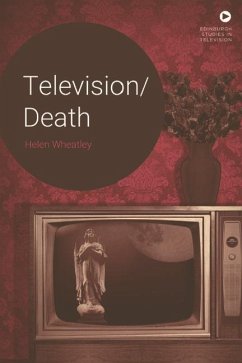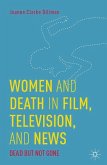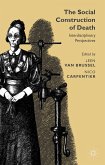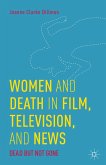Television/Death investigates the presentation of death, dying, and life after death on television. It seeks to answer questions such as 'What role does and has television played in our coming to terms with death?', 'How is death mediated in a variety of genres?', 'How has television imagined life beyond death', and 'How does television mediate the processes of bereavement and grief?'. Wheatley also argues that television is the posthumous medium par excellence and looks at how the dead return via incorporation into new television programmes or through projects to bring television programming out of the archive. Helen Wheatley is Professor of Film and Television Studies at the University of Warwick.
Bitte wählen Sie Ihr Anliegen aus.
Rechnungen
Retourenschein anfordern
Bestellstatus
Storno








